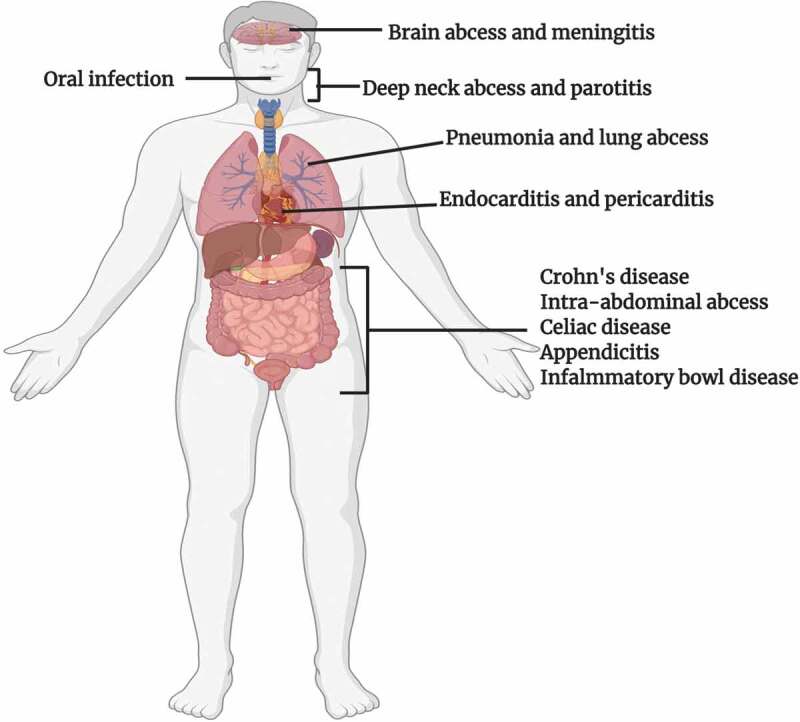Figure 1.

Sites of infection and diseases caused by Bacteroides spp
Bacteroides spp. can cause infections in various parts of the human body. They have been isolated from numerous patients suffering from meningitis and brain abscesses. After entry into the blood stream during extraintestinal infections, these microbes may enter the CNS by penetration of the blood brain barrier via olfactory and trigeminal cranial nerves. They have also been associated with oral infections and abscesses in the neck. In 90% of the cases of lung abscesses, polymicrobial infection occurs, and Bacteroides fragilis has been the predominant anaerobe isolated. Bacteroides vulgatus and Bacteroides fragilis have been reported to be the two main isolates from patients suffering from Crohn’s disease, while the latter has been associated with intra-abdominal abscesses, appendicitis, and inflammatory bowel disease. Data adapted from Ref 7.
